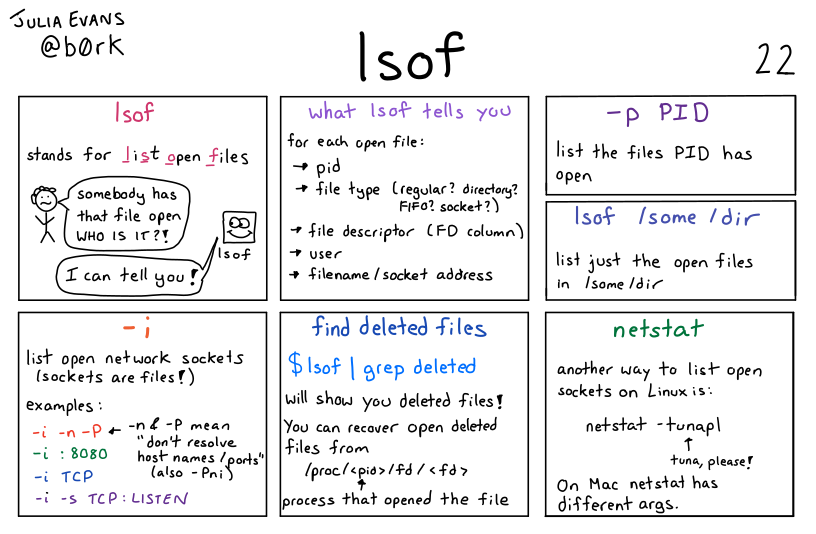
Here's a preview from my zine, Bite Size Command Line! If you want to see more comics like this, sign up for my saturday comics newsletter or browse more comics!
 get the zine!
get the zine!
read the transcript!
lsof
stands for list open files
stick figure, distraught: somebody has that file open, WHO IS IT?
lsof, represented by a rectangle with a goofy face: I can tell you!
what lsof tells you
for each open file:
pid- file type (regular? directory? FIFO? socket?)
- file descriptor (FD column)
- user
- filename/socket address
-p PID
list the files PID has open
lof /some /dir
list just the open files in some/dir
-i
list open network sockets (sockets are files!)
examples:
-i -n P(-n&-Pmean “don’t resolve host names/ports” [also-Pni])"-i : 8080-i TCP-i -s TCP:LISTEN
find deleted files
$lsof | grep deleted
will show you deleted files!
You can recover open deleted files from
proc/<pid>/fd/<fd>
(<pid> is the process that opened the file)
netstat
another way to list open sockets on Linux is:
netstat -tunapl
(tuna, please!)
On Mac, netstat has different args.